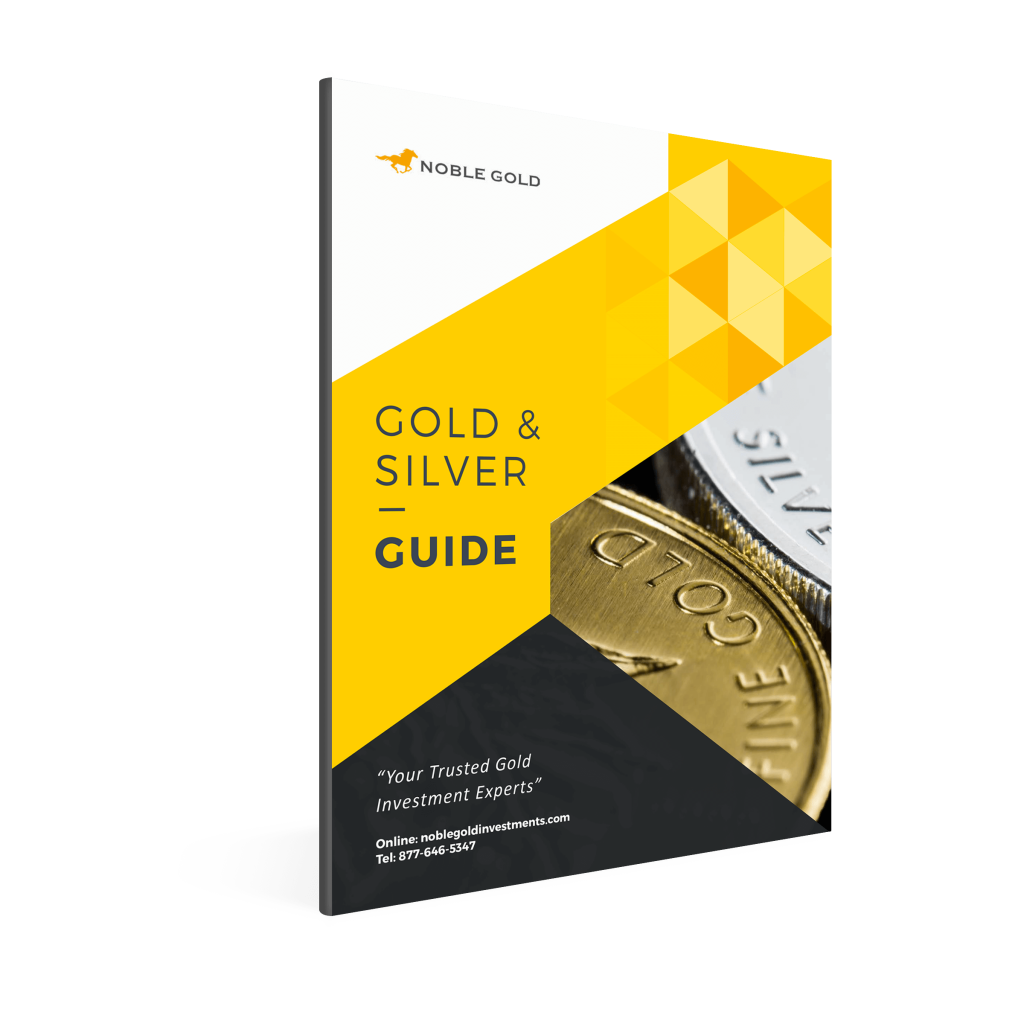What Happens in a Recession? (Recession 2026 Update)
Disclosure: We are reader-supported. If you purchase from a link on our site, we may earn a commission. Learn more
Last Updated on: 14th December 2025, 12:29 am
What should you do to be financially prepared to survive a future recession?

Free 2026 Gold Investment Kit (Noble Gold)
If recession headlines make you anxious, a rules-based plan can help you stay calm. This free kit explains how physical precious metals may fit into a diversified retirement strategy.
Disclosure: This link is promotional/affiliate in nature, meaning we may earn compensation if you take action. See our full disclosure.
People are always debating whether a recession is right around the corner. The truth is nobody can time it perfectly. What you can do is build resilience now so a downturn, whenever it happens, does not force you into bad money decisions.
Below I’ll break down what a recession is, common warning signs, and a practical checklist you can use to protect your household. I’ll also cover how different asset classes, including gold, have sometimes behaved during rough economic periods.
Disclaimer: This article is for general educational purposes only and is not personalized financial advice. Consider speaking with a qualified financial professional before making major financial decisions.
Table of Contents
- What Is a Recession?
- Signs of a Recession
- Economic Cycles: Expansion to Recession to Expansion
- Recession vs. Depression
- How to Prepare for a Recession
- What Are the Best Investments in a Recession?
- Gold Shines During Recessions (Sometimes)
- How to Invest in Gold
- Summary: Prepare For a Recession Today
- Recessions: Frequently Asked Questions (FAQs)
What Is a Recession?
A recession is a broad, meaningful decline in economic activity that lasts more than a brief dip. You will often hear the rule of thumb “two consecutive quarters of negative GDP,” but in the United States, the widely recognized business-cycle record is maintained by the National Bureau of Economic Research (NBER), which looks at multiple measures of economic activity and dates recessions by identifying peaks and troughs.
You can explore their methodology and historical chronology directly on the NBER site here: Business Cycle Dating.
One practical takeaway: recessions are usually declared after the fact, once data confirms what happened. That is why personal preparation matters more than trying to predict the exact start date.
Signs of a Recession
No single indicator “proves” a recession on its own. Recessions show up as a cluster of trends moving in the wrong direction at the same time. Here are common signals economists watch.
Real Personal Income Falls
Real personal income is income adjusted for inflation, so it reflects actual purchasing power. When inflation is high and wages do not keep up, households feel squeezed. If layoffs rise at the same time, the pressure compounds. If you want the quick breakdown of how these forces interact, see our guide on inflation vs. recession.
A recession can also widen inequality. Households with savings, low debt, and flexible income usually have more options when conditions tighten.
Unemployment Rises
In many recessions, employers cut costs by slowing hiring, reducing hours, freezing wages, or laying off staff. During the 2020 pandemic shock, the U.S. unemployment rate spiked dramatically. You can verify official unemployment data on the Bureau of Labor Statistics site: BLS Unemployment Rate Chart.
Consumer Spending Falls
When people feel less secure, they usually cut discretionary spending first. That can show up in weaker retail sales and reduced demand for services, which then affects corporate profits and hiring decisions.
Lower spending can trigger a feedback loop: weaker demand leads to layoffs, layoffs reduce income, and reduced income further lowers spending.
Manufacturing and Industrial Production Drop
As demand slows, manufacturers often scale back production and capital investment. This can ripple across supply chains, from raw materials to shipping to business services.
The Yield Curve Becomes Inverted
Another well-known signal is a “yield curve inversion,” when some short-term Treasury yields rise above longer-term Treasury yields. Historically, inversions have often preceded recessions, but timing varies and the signal is not perfect. If you want a well-known public model, the New York Fed publishes yield-curve-based recession probability estimates here: NY Fed Yield Curve (FAQ and model info).
Important: treat this as a risk indicator, not a guarantee. Markets can stay resilient longer than expected, and policy can change outcomes.
Economic Cycles: Expansion to Recession to Expansion

The “cycle” idea is not meant to be comforting fluff. It is a reminder that downturns are normal. The biggest personal finance mistakes often happen when people assume “this time is permanently different” and abandon a sound plan at the worst moment.
Recession vs. Depression
There is no single official line where a recession “becomes” a depression. In everyday usage, a depression typically means a recession that is much more severe and more prolonged, lasting years rather than months.
The Great Depression of the 1930s is the most famous example in U.S. history, but the term “depression” is not a label that gets assigned routinely in modern economic reporting.
How to Prepare for a Recession
The best recession plan is simple and a little boring, which is exactly why it works. The goal is to avoid being forced into bad moves, like taking on expensive debt, liquidating investments at the bottom, or falling behind on essential bills.
- Pay down high-interest debt – Credit cards and other high-rate debt can become a bigger problem when rates are elevated or income is uncertain. Reducing this burden improves your monthly flexibility.
- Build an emergency fund – A common target is 3–6 months of essential expenses, but the “right” amount depends on job stability, dependents, health, and how quickly you could replace income.
- Protect your income – Keep your resume updated, strengthen skills, and maintain your network. If you are self-employed, diversify clients and tighten invoicing so cash flow does not surprise you.
- Stress-test your budget – Ask: “If income fell 20% tomorrow, what do I cut first?” Do this once, write it down, and your future self will thank you.
- Review your risk exposure – Make sure your portfolio matches your timeline. If you will need the money soon, you may want less volatility. If your horizon is long, panic selling is usually the bigger enemy.
What Are the Best Investments in a Recession?
There is no single “best” investment for every recession, because each downturn has different causes. What matters more is how your overall plan behaves under stress.
Historically, defensive stock sectors like consumer staples and healthcare often hold up better than highly cyclical sectors, because people still buy essentials and still need medical care. Bonds can also help, depending on inflation and interest rate policy. The key word is “can,” not “will.”
If you want a plain-English, diversified approach, start with this guide: how to recession-proof your investments.
Gold Shines During Recessions (Sometimes)
Gold is often viewed as a crisis hedge and a potential diversifier. It frequently behaves differently than stocks, but it is not a magic shield. Sometimes it rises during fear-driven periods. Sometimes it goes sideways. Sometimes it drops.
A more accurate way to describe the 2007–2009 crisis era is this: the S&P 500 fell sharply from peak to trough, while gold generally held up better than many risk assets and later climbed to record highs in 2011 amid broader financial and sovereign-debt concerns. This does not mean gold rises in every downturn, but it helps explain why some investors use it for diversification.
Gold’s inflation-hedge story is also nuanced. Many investors view gold as a long-term purchasing-power hedge, while shorter-term performance can be inconsistent. If you are exploring the retirement-account angle specifically, start with our Complete Gold IRA Guide.
👍 Potential benefits of holding some gold
- Diversification: gold can behave differently than stocks and bonds, which may help smooth volatility for some portfolios.
- Crisis behavior: in certain “risk-off” moments, gold may attract demand when confidence drops.
- Hard-asset exposure: some investors like holding an asset that is not someone else’s liability.
👎 Downsides and risks to be honest about
- No cash flow: gold does not produce earnings, dividends, or interest.
- It can be volatile: gold can drop for long stretches, even when inflation is elevated.
- Costs matter: spreads, storage, and IRA fees can eat returns if you are not careful.

Image courtesy of Noble Gold.
Another historical period people cite is the 1970s, when inflation shocks and energy disruption increased interest in hard assets. And in modern markets, geopolitical tension can also drive safe-haven buying. For example, here is our coverage of a prior spike: gold rising above $2,000 amid geopolitical concerns.
How to Invest in Gold
If you are considering gold, the first step is choosing the right “vehicle.” Some investors prefer paper exposure (like ETFs), while others prefer physical bullion. If you want to hold physical metals inside a retirement account, make sure you understand the rules and logistics before you move money.
A common route is a self-directed IRA that allows alternative assets. Here is our guide to investing through a self-directed IRA. If you want to add silver to the conversation too, see our overview of popular silver coins for investors.
If you prefer an easy starting point, you can request Noble Gold’s free 2026 kit here: get the free 2026 gold investment kit.
Summary: Prepare For a Recession Today
Nearly everyone is affected in some way by recessions. But a recession does not have to become a personal financial disaster. The most reliable defenses are boring on purpose: an emergency fund, manageable debt, and a plan you do not abandon when fear spikes.
Smart portfolio management, including diversification across asset types, can also help you avoid being overexposed to any single risk. If you want to explore provider options, start here: top Gold IRA companies, then do your own due diligence and compare fees carefully.
Recessions: Frequently Asked Questions (FAQs)
How long is a recession, as compared to a depression?
Past recessions have lasted an average of 10 to 11 months. In contrast, depressions persist for several years—the Great Depression of the 1930s lasted approximately 10 years.



 Silver
Silver Gold
Gold Platinum
Platinum Palladium
Palladium Bitcoin
Bitcoin Ethereum
Ethereum

 Gold: $4,892.97
Gold: $4,892.97
 Silver: $85.29
Silver: $85.29
 Platinum: $2,176.99
Platinum: $2,176.99
 Palladium: $1,696.13
Palladium: $1,696.13
 Bitcoin: $78,490.19
Bitcoin: $78,490.19
 Ethereum: $2,425.25
Ethereum: $2,425.25